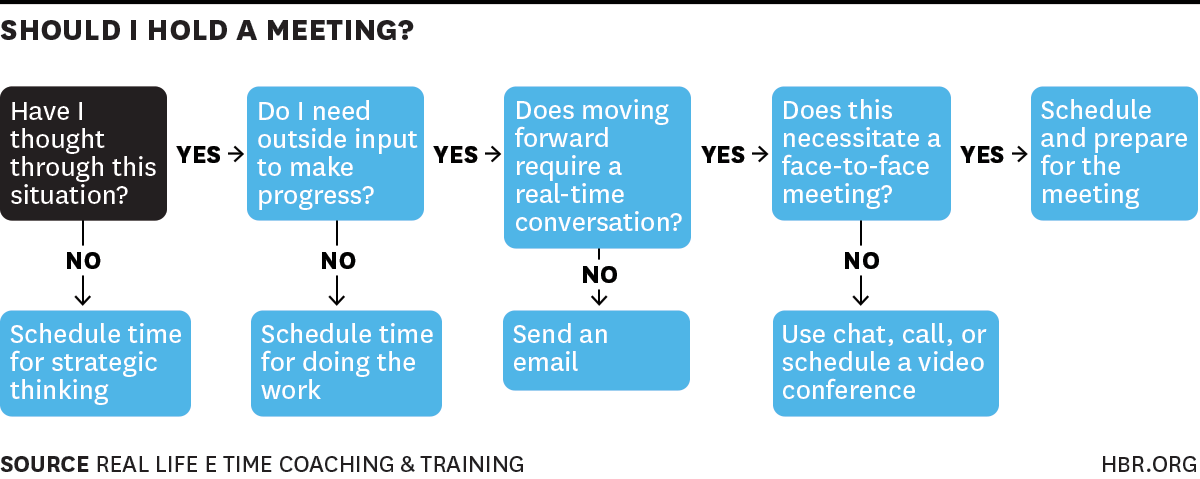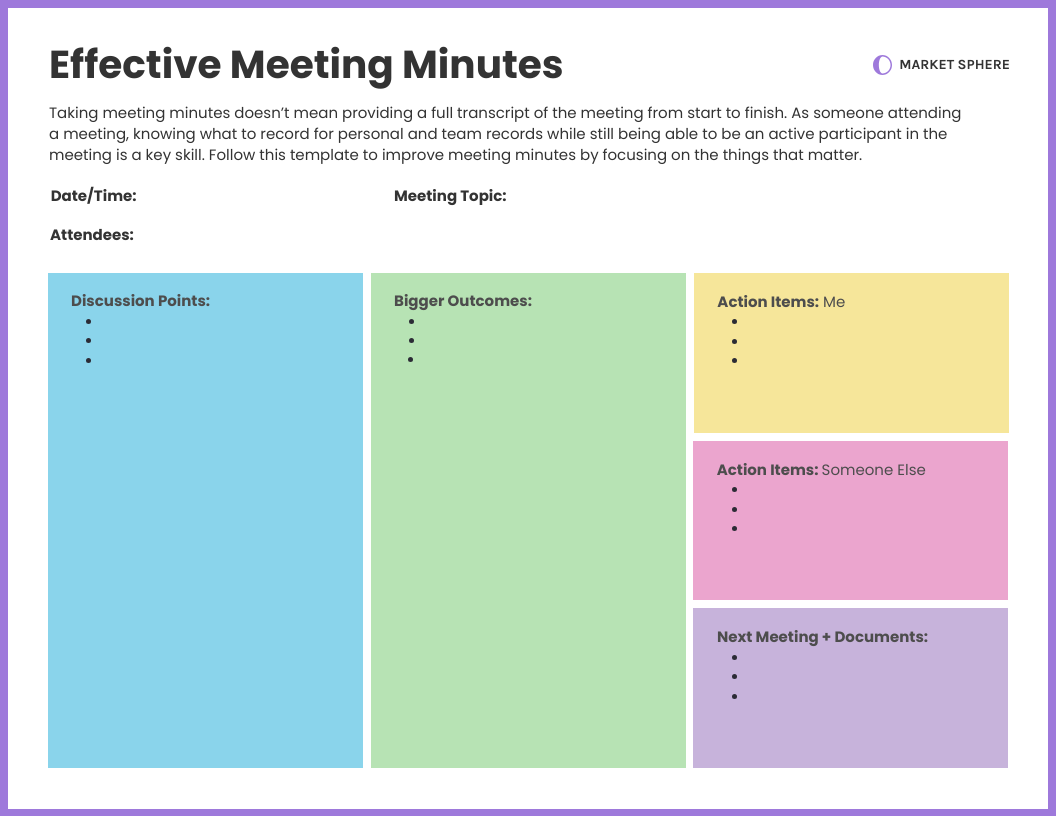3 min read
Get your meetings under control: 6 questions to help you banish back-to-backs
 Alicia McKay
Dec 6, 2023 12:34:43 PM
Alicia McKay
Dec 6, 2023 12:34:43 PM
Everyone is having too many meetings. In many teams, people click from one conversation to another, becoming paradoxically more bored and overwhelmed as the day progresses, with little space to consider meaningful ways to contribute or take action.
In Meetings that Matter, we focus on conversations that truly count—those designed to create action outside the room, where we need it most.
For a quick start, consider these six questions before you schedule yet another meeting.
- Should this be a meeting?
- Who needs to be there?
- What is the purpose?
- How much can we remove from the meeting?
- How will we spend our time together?
- What will happen next?
1. Should this be a meeting?
Scheduling meetings has an exponential cost beyond your own time—you're taking time out of others' lives to prepare, attend, and follow up on a conversation, so make sure it's worth it.
Many meetings should be emails, phone calls, or decisions made inside your own delegation. When our time is more precious than ever, meetings should be the exception, not the default.
Common culprits and their alternatives include:
Sharing information - email, DM, presentation, video, shared document
Round-robin updates or daily check-ins - shared document with live updates, one-on-one phone calls, task management software, intranet, daily email thread.
Consider creating a policy or go-no/go guide for your team or organisation to decide whether a meeting is the appropriate tool.
Here are some useful flow-chart examples that you might like to refer to.
Elizabeth Saunders (HBR)
2. Who needs to be there?
In some teams, meetings are filled with duplicate delegates or people who add no additional value.
Consider decision rights and responsibilities when deciding who should be at your meeting. This means asking questions like:
- Who does this decision most affect?
- Who has the final say?
- Who has unique input?
- What is the 'job' of each person in this meeting?
Meeting attendance is not the only way to capture input in your decision-making process. Consider using one-on-ones, surveys, or partial attendance to streamline the impact on other peoples' time.
When in doubt, consider the following three criteria: diversity, mandate and enthusiasm.
3. What is the purpose?
Nobody should ever arrive at a meeting wondering what it's about or why they've been invited. Every meeting should have one main job, which is spelt out beforehand.
When in doubt, consider the following
1. Is this a meeting to build understanding, shape choices or make decisions?
2. What does the outcome of this meeting look like? How will we know we have achieved our goal?
4. How much can we remove from the meeting?
Meetings should be interactive - they're an 'ask' job, not a tell job.
Too much time is wasted in meetings sharing updates, reading slide decks or providing information that could have been shared beforehand. Being clear about the scope of your meeting and providing the right preparation means you can make the most of your time together chatting and deliberating.
What can you send ahead of time to frame the discussion? (Note: do NOT send screeds of information. Provide a clear and readable summary or critical links and explain why this is important.)
What should you avoid discussing in this meeting? Many meetings are thrown off course by other issues currently on people's minds or are tangentially related to the topic at hand. Make it clear at the beginning what 'off-limits' for this conversation is and enforce it firmly as the meeting progresses.
5. How will we spend our time together?
An agenda needn't be prescriptive, but it should be made clear to all participants:
- Why a meeting has been called - including context
- What outcome needs to be reached - be as specific as possible
- What topics or stages are involved - be as tight as you can
- How time will be allocated - roughly.
This template agenda by Roger Schwartz is a great start, clearly time-bracketing topics into manageable chunks with suggestions on preparation and process.
Make sure you allocate reasonable amounts of time for each section. Most meetings try to do too much and either run over time or end half-baked. As a rule of thumb, allocate 50-75% more time to each discussion point than you expect it to take. If you finish early, no one will be upset. If that means you can't fit everything in, your agenda is overambitious, and you need to tighten your scope.
By circulating your intentions beforehand, people better understand why they're coming and are less likely to get offended when you need to move the discussion on.
6. What will happen next?
All meeting attendees should leave with a clear idea of what is happening next, with no topic thread left hanging.
The best way to do this is to use a consistent and clear template for meeting notes that can be easily circulated after the meeting—ideally, in draft form, on the same day.
A bulleted email will do the job for small conversations, but for longer or larger meetings, consider using your task management software, an online whiteboard or something like this template from Venngage.
 For more on running great meetings, sign up for Meetings that Matter.
For more on running great meetings, sign up for Meetings that Matter.